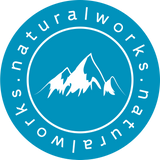
GUEST BLOG: Danny Sangha - Where does confidence come from?
Confidence coach Danny Sangha helps you feel more confident in your day to day life
There is a line of thought that one ‘builds’ confidence through their experiences and achievements. This implies that we rely upon successful outcomes to gain confidence, and without such successes we are left empty of it. It also suggests that we start out with no confidence, which couldn’t be any further from reality if you ask me.
Have you ever seen a baby lack the confidence to try and crawl or walk? And have you ever seen a baby give up when they’ve not been successful on the first attempt? How about after the tenth attempt? I think not.

We are born oozing confidence, and a few unsuccessful attempts at crawling or walking are not going to diminish those levels of confidence. We have an innate ability to push our current boundaries, to learn from the process, to adapt and then try again, and to repeat this sequence as many times as necessary until we achieve the successful outcome we are requiring. The process does not involve confidence levels diminishing.
So, what am I getting at here? Simply put, we come into this world with all the confidence we need, with a vessel of it completely full to the brim, but what we learn from the environment around us, in particular our observations of others and the many other experiences along the way, inevitably create layers that mask that confidence and have us doubting ourselves. We then become conditioned to search for external factors for validation and confidence boosts in an attempt to claim back the confidence that we already have within us. But like everything around us in this world, this will only ever be temporary, leaving us constantly searching for yet more confidence from further endeavours and endlessly craving validation from others.
For lasting confidence, we must invest time in peeling back those layers which mask the confidence we already possess – that brimming vessel that we brought into this world with us. I refer to this activity as a self-discovery process and one that should continue throughout our lifetime, helping us to continuously tap into a seemingly unlimited supply of confidence.
Confidence isn’t something that you lose which you then need to replace with what you find in your external world. It’s something that you’ve always had but just lost sight of for one reason or another. And like with anything that’s sitting right under your nose; the further outward you search for it the more hidden it is from your sight.
But go a step further and closer than looking under your nose. Go inward and search for your confidence there. With the clarity that you gain from discovering more about yourself, you’ll unlock more and more of the confidence hiding behind those layers. As you peel back those layers you will realise that these layers are ‘rules’ self-limiting beliefs, irrational thoughts lacking in logic and lies that have kept you with a false sense of safety and held you back from progressing.
Once you uncover that vessel full of confidence, you’ll come to realise that it doesn’t deplete itself and is available on tap in unlimited supplies as and when you require it. And with this new insight you’ll start to see the external world differently and begin to unlock your potential within a world full of opportunity. NaturalWorks CBD will support you in this journey.
Danny Sangha is a Clarity, Alignment & Confidence Coach Providing Professional & Personal Success. He has spent over 15 years providing Clarity, Alignment & Confidence to individuals with a total of over 43,000 plus hours spent across several Industries.
Danny has specifically worked closely with individuals in the Media whom are highly recognised public figures providing clarity to an individual on their values, purpose and direction in their personal and professional life.
